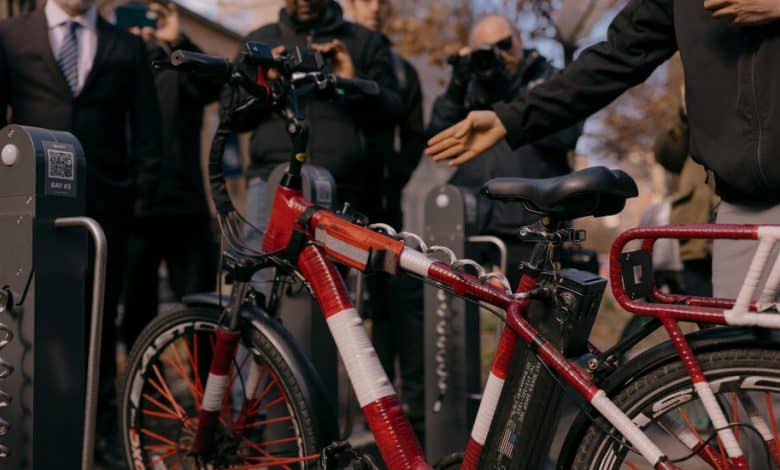After Deadly Fires, New York Tries Public E-Bike Charging Hubs

The Latest
New York City will begin testing public e-bike charging hubs for delivery workers in Manhattan and Brooklyn, offering an alternative to charging e-bike batteries inside homes and businesses. The first of five charging hubs was unveiled at Cooper Square in the East Village on Thursday as part of a six-month city pilot program.

The city has partnered with three companies — Swobbee, PopWheels and Swiftmile — on the new e-bike charging hubs.Credit…José A. Alvarado Jr. for The New York Times
Why It Matters
Lithium-ion batteries, which are used to power e-bikes, e-scooters and other e-mobility devices, have rapidly become a leading cause of fatal fires in New York City. The batteries sparked 268 fires in 2023 that killed 18 people and injured 150 others.
This year, there have been 31 lithium-battery fires in the city as of Feb. 26, including a blaze in a Harlem apartment building last week that killed Fazil Khan, 27, a journalist, and injured 17 others.
Lithium batteries can explode with little or no warning. Fire officials have warned that batteries should not be stored or charged near doors and windows where a fire could block escape. The safest place to charge batteries is outdoors.
“I think I can literally say today that projects like this are going to save lives,” Fire Commissioner Laura Kavanagh said at a news conference.
The charging hubs will be installed starting in the next week, Transportation Commissioner Ydanis Rodriguez said.
Background
Last year, New York became the first city in the United States to ban the sale of e-mobility devices and batteries that have not been certified to industry safety standards. On Wednesday, the City Council passed legislation to increase enforcement and penalties for illegal device sales and require sellers to post battery safety information in stores and online.
New York leaders have also targeted unsafe battery conditions at e-bike stores, run public service announcements, and lobbied for more state and federal oversight over e-mobility devices. Several voluntary trade-in programs have sought to get unsafe e-bikes and batteries off the streets.
